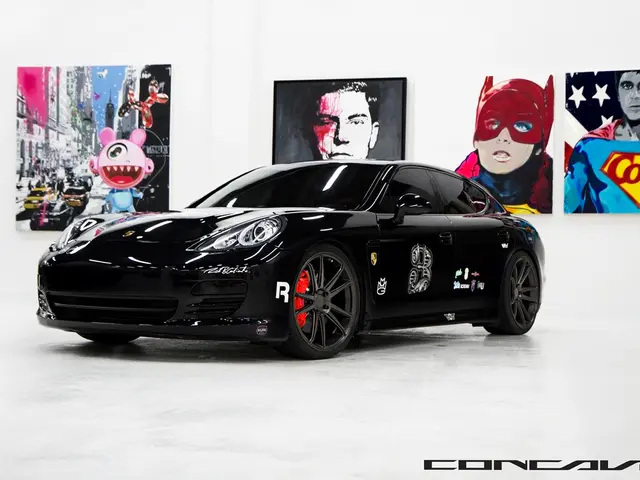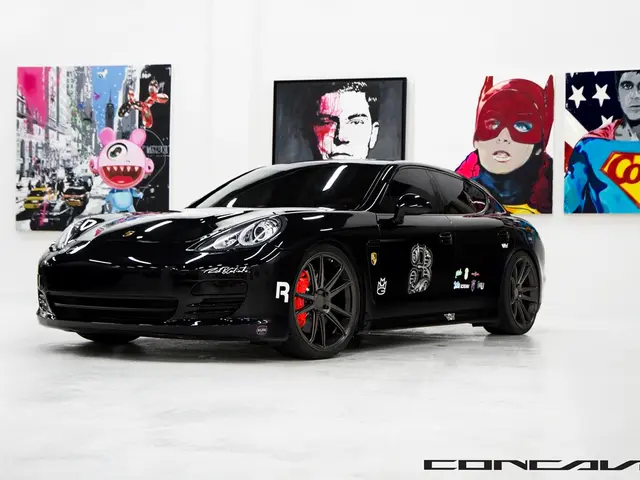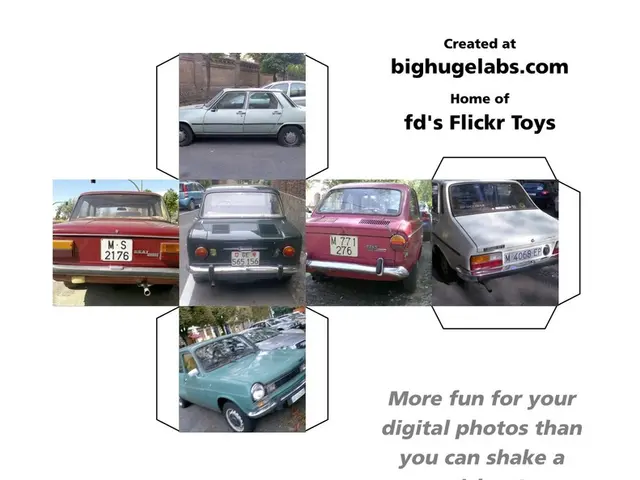Keeping Up with the Latest on EU's CO2 Emission Limits for Automobiles
Anticipation of CO2 emission regulation adjustment for automobiles potentially announced by Thursday - Relaxation of Car Emission Standards to be Discussed Thursdays
The European Union (EU) is making moves to adjust the carbon dioxide (CO2) emission targets for cars and vans, fostering a smoother transition towards eco-friendly mobility. Here are the main points and updates on this matter:
Relaxation Proposal for 2025-2027
- Flexibility in Target Regulations: The European Parliament has approved a measure granting car and van manufacturers the chance to balance their CO2 emissions over a three-year span (2025-2027), instead of meeting yearly targets. This adjustment aims to lessen the burden on compliance without compromising the EU's climate ambitions.[2][5]
- No Relaxation for 2022: The current adjustments do not immediately discuss a relaxation for the 2022 CO2 emission limits. The main focus is on changes starting from 2025.
Fleet CO2 Emissions Standards
- 2025-2029 Compliance Cycle Reduction: In 2025, automakers are mandated to reduce the average CO2 emissions from their fleet by 15% compared to 2021 levels. This requirement forms part of the broader strategy to gradually lower emissions over time.[1][2][3]
- Average Emission Measurement: With the newfound flexibility, manufacturers can compensate for higher emissions in one year by exceeding targets in another, as long as they adhere to the average within the three-year measurement period.[2][5]
Automobile Manufacturer Considerations
- Volkswagen and Renault: This proposed flexibility is expected to advantage key car manufacturers such as Volkswagen and Renault, offering more time and flexibility to adapt to rigorous emission standards. This could help them navigate operational and technological obstacles during the transition to electric vehicles.[2][5]
- Industry Benefit: The automotive industry has advocated for these changes, believing that they enable continued investments in clean technologies while managing supply chain uncertainties and shifting consumer preferences.[5]
Political and Environmental Critique
- Greens/EFA Group Concerns: The Greens/EFA group has voiced concerns that these adjustments could weaken the EU's climate goals and provide an edge to non-EU manufacturers, such as Chinese companies, potentially denting the competitiveness of the European car industry.[4]
In summary, the EU's objective is to support the automotive sector's shift towards cleaner vehicles while maintaining its climate aspirations, although it has faced criticism from some environmental groups.
- The relaxation proposal for the 2025-2027 CO2 emission targets in EC countries allows car and van manufacturers to balance their emissions over a three-year span, a move aimed at easing compliance without undermining the EU's climate ambitions.
- Key automobile manufacturers, such as Volkswagen and Renault, are expected to benefit from this flexibility in energy policy, as they will have more time to adapt to stringent emission standards and navigate operational challenges during the transition to electric vehicles.
- The automotive industry argues that the proposed energy policy changes enable continued investments in clean technologies while managing supply chain uncertainties and evolving consumer trends.
- Environmental groups like the Greens/EFA have expressed concerns that the relaxed energy policy could weaken the EU's climate goals, potentially providing an advantage to non-EC manufacturers, such as Chinese companies, jeopardizing the competitiveness of the European car industry.








